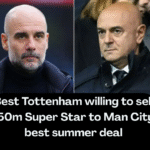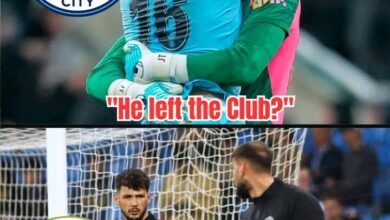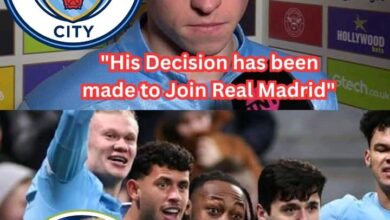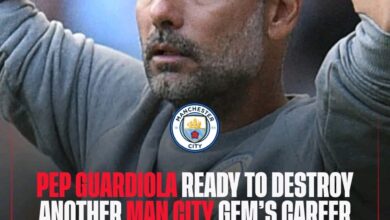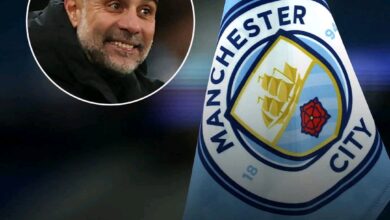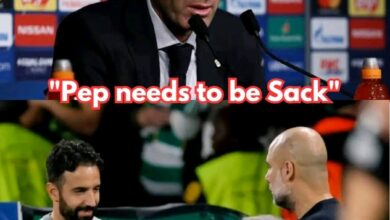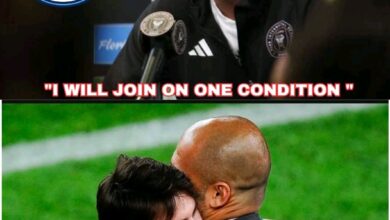Shock Premier League transfer could be a golden opportunity for Manchester City Stefan Ortega’s Manchester City Future: The Goalkeeper Conundrum at the Etihad
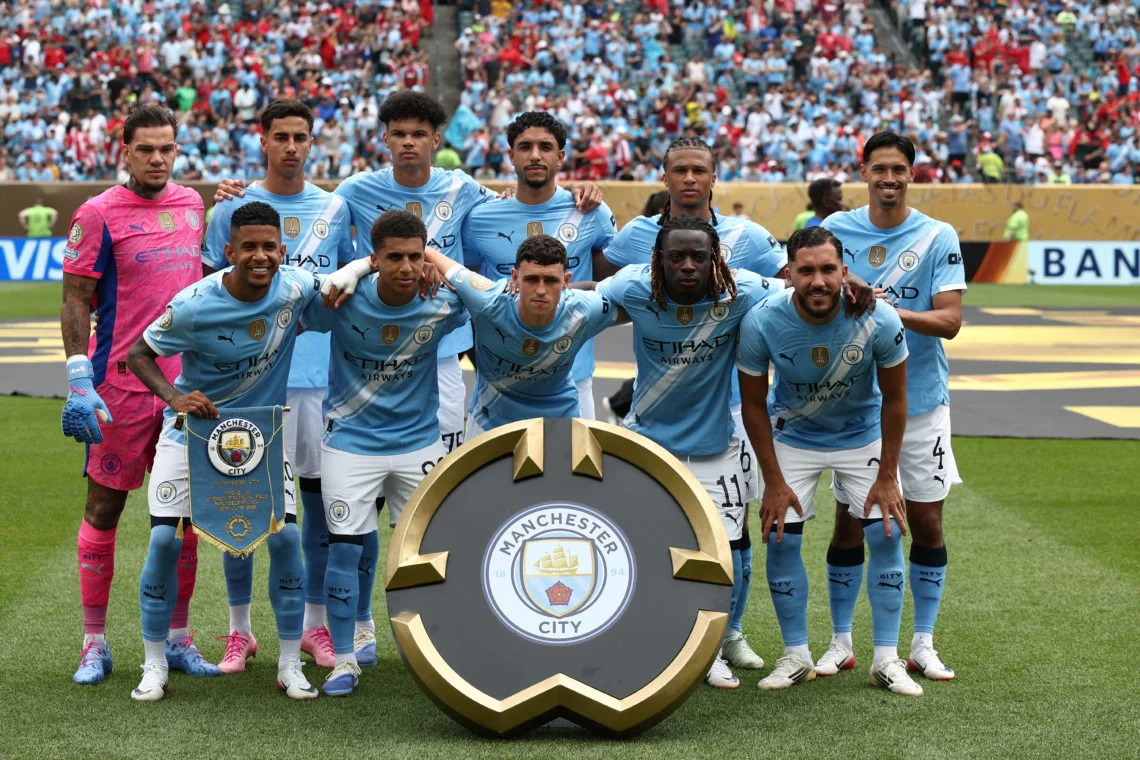
The summer transfer window of 2025 has brought with it a familiar narrative for Manchester City – the potential exodus of several key players as the club navigates both financial pressures and squad evolution. Among the names being whispered in corridors and reported in newspapers, one that has garnered particular attention is that of Stefan Ortega, the German goalkeeper whose future at the Etihad Stadium appears increasingly uncertain.
Manchester City find themselves at a crossroads as the 2025 summer transfer window unfolds. The club’s hierarchy, led by Director of Football Hugo Viana, faces the challenging task of balancing financial sustainability with competitive excellence. This delicate equilibrium has inevitably led to speculation surrounding the futures of several high-profile players, with Jack Grealish being perhaps the most prominent example after his notable exclusion from Pep Guardiola’s FIFA Club World Cup squad.
The ripple effects of such decisions extend beyond individual players, creating an atmosphere of uncertainty that permeates throughout the squad. Kyle Walker and John Stones, both stalwarts of the City defense, have also found their names linked with potential departures, suggesting a broader restructuring may be on the horizon. Within this context, Stefan Ortega’s situation becomes not just a personal career decision, but a microcosm of the larger challenges facing modern football clubs.
Stefan Ortega’s journey to Manchester City represents one of the more unconventional paths taken by a goalkeeper in recent years. The 32-year-old German arrived at the Etihad Stadium with a reputation built not in the grand theaters of European football, but through consistent performances and unwavering determination. His presence at City has been that of a reliable understudy, a professional who understood his role while harboring ambitions for something greater.
The goalkeeper’s position at any club is unique in its isolation and pressure. Unlike outfield players who can rotate more freely, goalkeepers typically operate in a strict hierarchy where opportunities for regular first-team football are limited. For Ortega, this reality has become increasingly apparent as he approaches what many consider the twilight years of a professional career. At 32, time is not on his side, and the urgency to secure regular playing time has never been more pressing.
Recent reports from sources close to the player paint a picture of a goalkeeper wrestling with ambition and pragmatism. The desire to establish himself as a first-choice goalkeeper burns as strongly as ever, creating a tension between loyalty to his current club and the pursuit of personal fulfillment. This internal conflict is not uncommon among squad players at elite clubs, where the gap between talent and opportunity often creates impossible choices
Central to understanding Ortega’s predicament is the presence of Ederson, Manchester City’s Brazilian number one. The 31-year-old has established himself as one of the premier goalkeepers in world football, combining shot-stopping ability with an exceptional distribution that has become integral to City’s playing style. Ederson’s importance to Guardiola’s tactical system cannot be overstated – his ability to play out from the back with both feet has revolutionized the goalkeeper position in modern football.
For Ortega, competing with Ederson presents a challenge that extends beyond mere ability. The Brazilian’s style and skill set align perfectly with Manchester City’s tactical philosophy, making any potential displacement extremely unlikely. This reality was reinforced earlier in the summer when Ederson moved to quash speculation about his own departure, stating emphatically that his future remained at the Etihad Stadium.
“No, no, no. My future is here,” Ederson declared, addressing the swirling rumors with characteristic directness. “Some friends send me a lot of news, but 99% is fake news. I understand, but there’s a lot of fake news around my name.” These words, while providing clarity about the Brazilian’s intentions, simultaneously highlighted the limited opportunities available to Ortega in the immediate future.
The dynamics between the two goalkeepers reflect broader themes in modern football about squad depth and player satisfaction. While clubs benefit from having quality options in every position, maintaining harmony among players with limited playing time remains an ongoing challenge. Ortega’s professionalism throughout his time at City has been exemplary, but human nature dictates that ambition and frustration will eventually surface.
The suggestion that Ortega could be tempted by offers from other Premier League clubs speaks to the fundamental desire that drives all professional athletes – the need to compete at the highest level regularly. For a goalkeeper of his experience and ability, the prospect of becoming a first-choice keeper elsewhere represents not just a career opportunity, but a chance to fulfill personal ambitions that have remained unfulfilled at City.
The Premier League landscape offers several potential destinations where Ortega’s experience and reliability could prove invaluable. Clubs seeking stability between the posts might view the German as an ideal solution – a proven performer who understands the demands of English football without requiring a significant adjustment period. His familiarity with the league’s physicality, pace, and tactical variations represents a significant advantage over international alternatives.
The financial implications of such a move are equally compelling. While Manchester City can offer Champions League football and the prestige associated with one of Europe’s elite clubs, the guarantee of regular first-team football elsewhere might prove more attractive to a player at this stage of his career. The difference between being a squad player at a top-four club and a first-choice goalkeeper elsewhere is not just about playing time – it’s about identity, purpose, and professional satisfaction.
Moreover, the potential for Ortega to secure a more lucrative contract as a first-choice goalkeeper elsewhere cannot be ignored. Squad players, regardless of their quality, typically earn less than their first-team counterparts. A move that guarantees regular football could also provide financial security for the latter stages of his career and beyond.
Perhaps the most intriguing aspect of Ortega’s situation is the possibility of him running down his contract to leave as a free agent in 2026. This scenario represents a calculated gamble that reflects the modern player’s understanding of their market value and leverage. By allowing his contract to expire, Ortega would maximize his options while potentially securing a more favorable deal with his next club.
Free transfers have become increasingly common in modern football as players and their representatives recognize the financial benefits of avoiding transfer fees. For the receiving club, acquiring a player of Ortega’s caliber without a transfer fee represents exceptional value, allowing them to invest the saved money in other areas or offer more attractive terms to the player himself.
The strategy, however, is not without risks. Injuries, loss of form, or changes in the market could significantly impact Ortega’s attractiveness to potential suitors. At 32, every season becomes more crucial in terms of maintaining physical condition and competitive edge. The decision to run down a contract requires confidence in one’s ability to remain at peak performance while navigating the uncertainty that comes with an unclear future.
For Manchester City, the prospect of losing Ortega for nothing would represent both a financial loss and a reduction in squad depth. The club invested in bringing him to the Etihad Stadium and has benefited from his professionalism and readiness when called upon. Losing such an asset without compensation would be particularly frustrating given the current financial climate in football.
The arrival of Hugo Viana as Director of Football has brought with it speculation about significant changes to Manchester City’s goalkeeper department. Viana’s reputation for identifying and developing talent suggests a long-term vision that may not align with the current setup of Ederson and Ortega. Reports linking the club with younger alternatives like Gianluigi Donnarumma and Diogo Costa indicate a strategic shift toward the future.
Donnarumma, at 26, represents everything modern clubs seek in a goalkeeper – youth, proven quality at the highest level, and the potential for long-term stability. His experience with Paris Saint-Germain and the Italian national team provides the pedigree expected at a club of Manchester City’s stature. Similarly, Diogo Costa’s performances for Porto have marked him as one of Europe’s most promising young goalkeepers, with his 25 years suggesting he could provide a decade or more of service.
The pursuit of these younger alternatives signals a potential end to the Ederson-Ortega era at Manchester City. While Ederson’s contract situation (also expiring in 2026) adds another layer of complexity, the focus on younger targets suggests the club is prepared for significant changes in the goalkeeper position. This strategic approach prioritizes long-term stability over short-term continuity, a philosophy that could leave both current goalkeepers seeking new challenges.
Viana’s willingness to invest heavily in a marquee goalkeeper signing demonstrates the importance the club places on the position. In Guardiola’s system, the goalkeeper is not merely a shot-stopper but a crucial component of the team’s build-up play. Finding the right profile requires significant investment, both financially and in terms of scouting and analysis.
Ortega’s situation cannot be viewed in isolation from Manchester City’s broader squad evolution. The club faces challenges on multiple fronts – aging players, contract situations, financial regulations, and the need to refresh the squad while maintaining competitive standards. These pressures create a complex web of decisions that impact every player, regardless of their status within the team.
The potential departures of established players like Grealish, Walker, and Stones suggest a club in transition. These moves, whether voluntary or necessitated by circumstances, create opportunities for squad renewal but also introduce uncertainty. For players like Ortega, caught between the old guard and incoming talent, the path forward becomes increasingly unclear.
Manchester City’s success over the past decade has been built on squad depth and the ability to rotate players without significant drops in quality. However, maintaining such depth requires careful balance between player satisfaction and squad harmony. As players age and ambitions evolve, the challenge of keeping everyone content becomes more complex.
The club’s recent history suggests they are not afraid to make difficult decisions when necessary. The departure of long-serving players has become a regular feature of their transfer windows, reflecting a ruthless approach to squad management that prioritizes collective success over individual loyalty. While this approach has delivered unprecedented success, it also creates an environment where no player can feel entirely secure.
The financial landscape of modern football adds another dimension to Ortega’s situation. Manchester City, like all clubs, must navigate increasingly complex financial regulations while maintaining competitive squads. The value of squad players has evolved, with clubs recognizing that depth comes at a premium that must be carefully managed.
Ortega’s potential departure, whether through transfer or free agency, would have financial implications beyond the immediate loss of an asset. The cost of replacing him with a suitable backup goalkeeper could exceed any transfer fee received, particularly in a market where quality goalkeepers command premium prices. This economic reality influences how clubs approach contract negotiations and retention strategies.
The goalkeeper market has experienced significant inflation in recent years, with even backup options commanding substantial fees and wages. This trend makes retaining proven performers like Ortega more attractive, even if their playing time remains limited. The cost of change often exceeds the cost of continuity, creating tension between sporting ambition and financial prudence.
For Ortega, understanding his market value and the financial dynamics at play provides leverage in negotiations with both current and potential employers. His experience, reliability, and Premier League familiarity make him an attractive option for clubs seeking stability in goal without the premium associated with younger alternatives.
Behind the speculation and analysis lies a human story of ambition, frustration, and the pursuit of fulfillment. Ortega’s career has been defined by perseverance and professionalism, qualities that have served him well but may now be tested by the realities of elite football. The desire for regular playing time is not merely about statistics or recognition – it represents a fundamental need for purpose and validation.
The psychological impact of being a perpetual understudy cannot be underestimated. While the financial rewards and association with success provide compensation, the lack of regular competitive action can affect confidence, motivation, and long-term career satisfaction. For a player approaching the latter stages of his career, these considerations become increasingly important.
Ortega’s situation resonates with countless players throughout football who face similar dilemmas. The choice between security and ambition, between guaranteed success and personal fulfillment, reflects broader themes about career satisfaction and personal values. There is no objectively correct answer, only individual choices based on personal priorities and circumstances.
The support systems around modern players – agents, family, advisors – play crucial roles in navigating these decisions. The complexity of modern football contracts, market dynamics, and career planning requires expertise that extends beyond the pitch. For Ortega, having the right guidance during this critical period could determine not just his immediate future but his long-term legacy.
As the summer transfer window progresses, several scenarios could unfold regarding Ortega’s future. The most straightforward would see him remain at Manchester City for another season, continuing in his current role while hoping for opportunities to prove his worth. This path offers security but limited prospects for significant change in his playing time or status.
Alternatively, a transfer to another Premier League club could provide the regular football he craves while maintaining his connection to English football. Such a move would require finding the right club with both the need for his services and the financial means to secure them. The timing of any such transfer would be crucial, as clubs finalize their squad plans for the upcoming season.
The free transfer option represents the most dramatic scenario, requiring Ortega to bet on his own ability to maintain form and fitness while navigating a year of uncertainty. This path could ultimately prove most rewarding if it leads to a more favorable situation, but it also carries the greatest risks.⁴and
From Manchester City’s perspective, the club must balance their immediate needs with long-term planning. Retaining Ortega provides security and depth, while his departure creates opportunities for squad renewal and potential cost savings. The decision will likely depend on their success in securing alternative targets and their assessment of squad requirements.
Stefan Ortega’s situation at Manchester City encapsulates many of the challenges facing modern football – the balance between ambition and security, the complexities of squad management, and the human stories behind tactical decisions. As a 32-year-old goalkeeper seeking regular football, his choices will define not just his immediate future but his lasting legacy in the game.
The coming weeks will provide clarity about Ortega’s next chapter, whether that involves remaining at the Etihad Stadium or seeking new challenges elsewhere. Whatever decision he makes will reflect not just tactical considerations or financial incentives, but deeply personal values about career fulfillment and professional satisfaction.
For Manchester City, Ortega’s situation represents one piece of a larger puzzle as they navigate squad evolution and long-term planning. The club’s handling of his case will send signals about their approach to player retention and their vision for the future. In a sport where success is measured in trophies and statistics, the human elements of ambition, loyalty, and personal fulfillment remain equally important.
The goalkeeper’s gloves may be the tools of his trade, but the decisions Ortega makes this summer will be shaped by considerations that extend far beyond the penalty area. In the end, his choice will reflect the eternal tension between security and ambition that defines not just football careers, but professional life itself.


